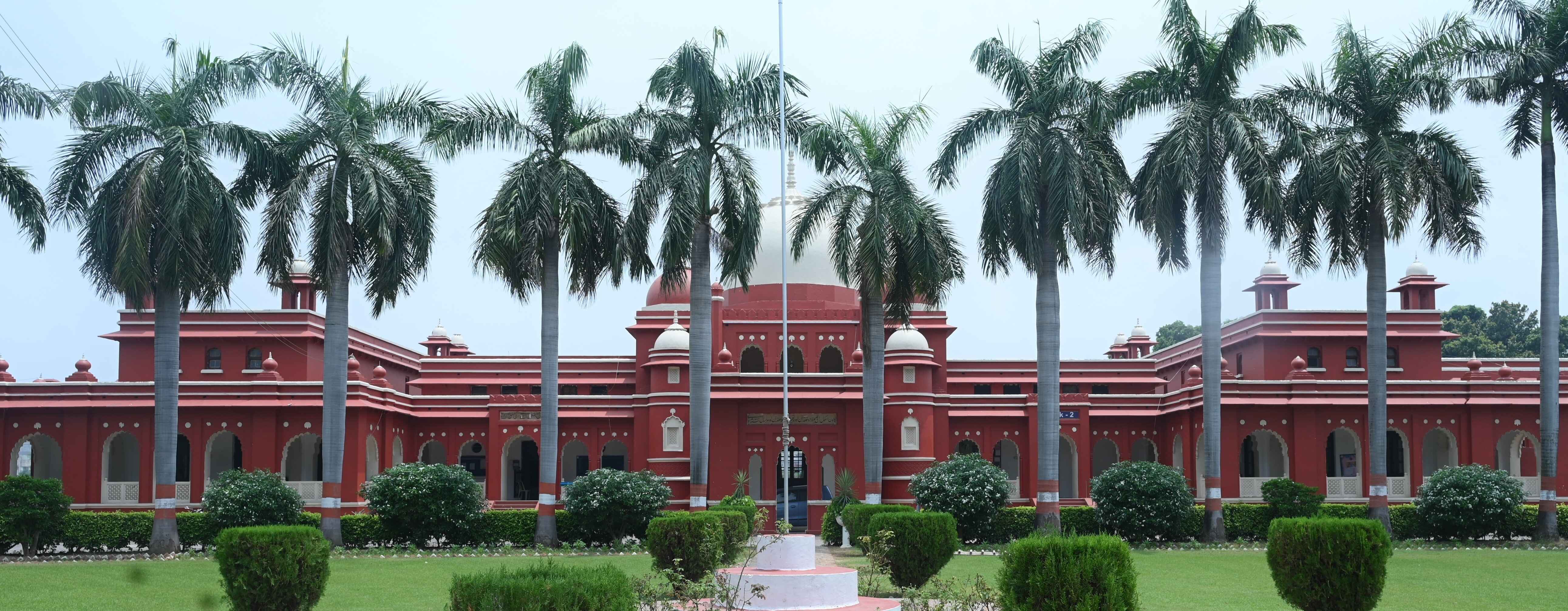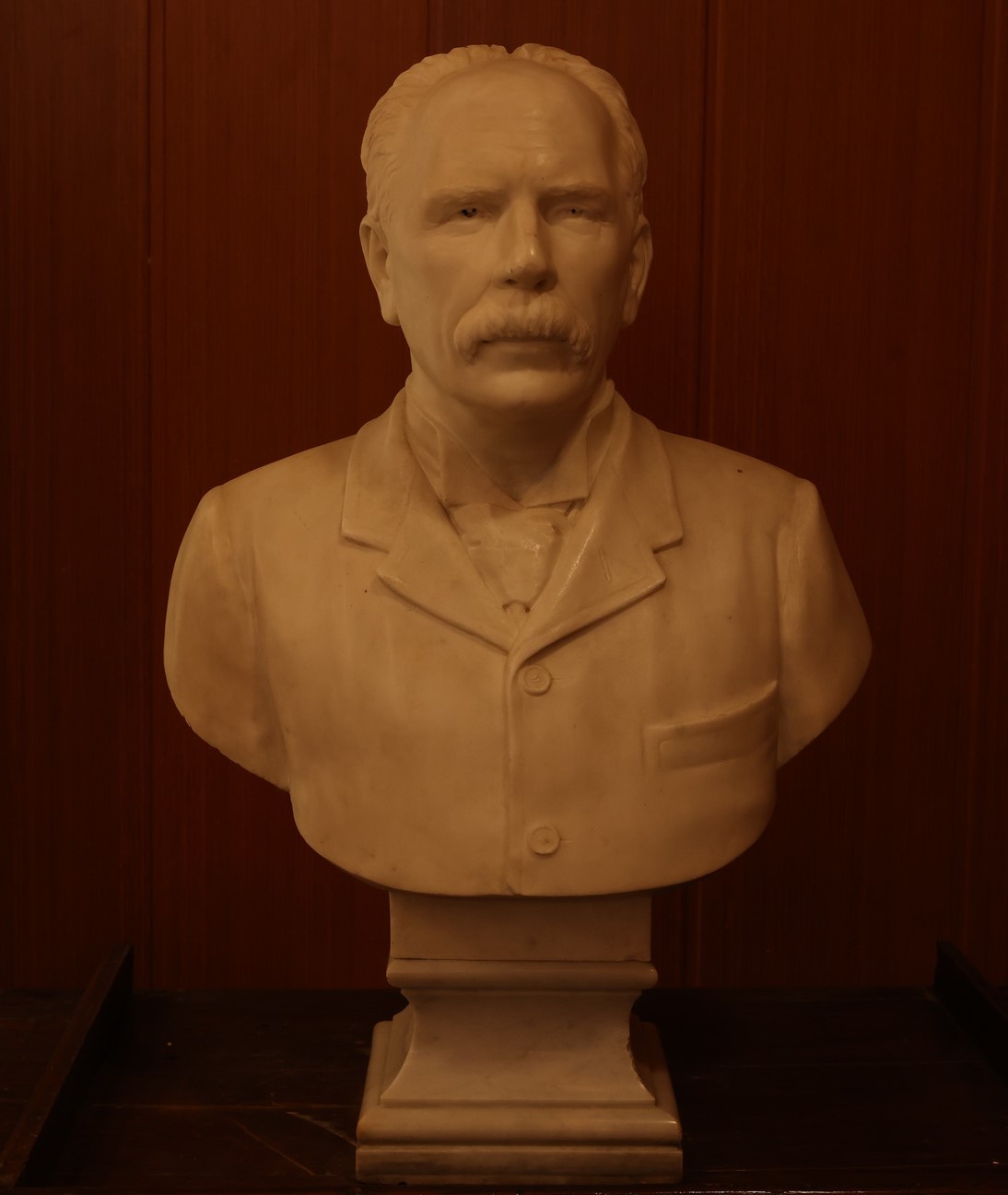
Our Founder
 Sir Auckland Colvin, KCSI, KCMG, CIE was a British civil servant and colonial administrator who served in various high-ranking positions in Egypt and British India during the late 19th and early 20th centuries.
Sir Auckland Colvin, KCSI, KCMG, CIE was a British civil servant and colonial administrator who served in various high-ranking positions in Egypt and British India during the late 19th and early 20th centuries.
He was born at Calcutta on 8 March, 1838. being the third son of the ten children of John Russell Colvin, by his wife Emma Sophia. Three of his brothers, Bazett Wetenhall Colvin, Eliott Graham Colvin and Sir Walter Mytton Colvin had passed distinguished careers in India. A fourth brother, Clement Sneyd Colvin, was secretary of the Public Works Department of the India Office, in London.
Sir Auckland was born when his father was Private Secretary to George Eden, first Earl of Auckland, then Governor General of India, and was named after him. In retirement, Sir Auckland wrote the Biography of his father who rose to become the Lieutenant Governor of the North Western Provinces and died in the Mutiny of 1857.
He was educated at Eton from 1850 and from 1854 at the East India College. He married Charlotte Elizabeth Herbert on 4 August, 1859. He had a son, who died in infancy, and 4 daughters. He died on 24 March, 1908 at Suffolk House, Maple Road, Surbiton where he was living with his eldest daughter, Emma Sophia Groome, and was laid to rest at Earl Soham, Framlingham.
Sir Auckland arrived in India on 17 January, 1858 and was posted to the Agra provinces. After serving the usual district novitiate, he returned to the headquarters in May 1864 as under secretary in the Home and afterwards in the Foreign Departments of the Government of India. He returned to his own province in July 1869 as a settlement officer and did good work in the revision of the Allahabad district settlement. He officiated as secretary to the Government of the North Western Provinces in April 1873 and from the following June as Commissioner of Excise and Stamps. The Lieutenant Governor, Sir George Couper, resented some criticism of the local government in The Pioneer (Allahabad), which was attributed to Colvin’s pen, or inspiration. In the spring of 1877, Couper sent Sir Auckland back to district work as Collector of Basti. From November 1877, he officiated for a short while as Commissioner of Inland Customs under the Government of India, and was afterwards made Collector of Bijnaur.
 When Lord Cromer became British Agent in Egypt, Sir Auckland succeeded him as the financial member of the Viceroy’s Council in India in August 1883. There were serious financial difficulties. The war in upper Burma had started. The danger of hostilities with Russia, consequent upon the Panjdeh Incident, were followed by great capital outlay on improving the strategic position of the North West Frontier and by increases in the British and native aqrmies. Colvin minuted against this increase but the military component in the Viceroy’s Council did not listen to him. Although he caused a committee to be appointed under Sir Charles Eliott to recommend economies, he was compelled to suspend the Famine Insurance Fund and increase the taxation. In his last budget (1887-88), he increased the salt duty by 25% and imposed an export duty on petroleum.
When Lord Cromer became British Agent in Egypt, Sir Auckland succeeded him as the financial member of the Viceroy’s Council in India in August 1883. There were serious financial difficulties. The war in upper Burma had started. The danger of hostilities with Russia, consequent upon the Panjdeh Incident, were followed by great capital outlay on improving the strategic position of the North West Frontier and by increases in the British and native aqrmies. Colvin minuted against this increase but the military component in the Viceroy’s Council did not listen to him. Although he caused a committee to be appointed under Sir Charles Eliott to recommend economies, he was compelled to suspend the Famine Insurance Fund and increase the taxation. In his last budget (1887-88), he increased the salt duty by 25% and imposed an export duty on petroleum.
Sir Auckland welcomed his transfer on 21 November 1887 to Allahabad as Lieutenant Governor of the North-Western Provinces and Chief Commissioner of Oudh from 1887 to 1889, succeeding Sir Alfred Comyn Lyall. To his influence were due good water supplies and drainage systems in the larger towns of what were by then known as the United Provinces, several new hospitals and the Colvin Taluqdars’ College at Lucknow. During his tenure, he made efforts to micro-manage the local administration and implement several economic and social reforms. He was also involved in dealing with the social and political challenges of the time. Colvin's contributions to British India's administration were significant, and he left quite a mark on the region during his service.
The construction of the school started early in 1881. With the introduction of the wards class in 1884, the school began to grow and was established formally in 1889. Henry George Impey Siddons became the first Principal.
Colvin recognized the importance of education and sought to improve educational opportunities in the region. He provided support and resources for the establishment of the school, which was initially intended to cater to the educational needs of the Taluqdars, who were landowners and revenue collectors in Oudh. The school was named after him to honor his contribution.
Over the years, Colvin Taluqdars' College has grown and evolved into a prestigious educational institution in Lucknow, providing contemporary education to the students.
.png)